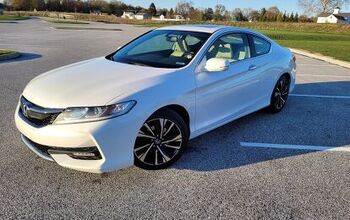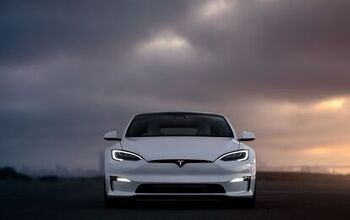Roadmap To Electrification: Please Have Toll Ready
Battery electric vehicles are widely seen as the most promising long-term automotive greentech, but they’re also hardly poised to take over the industry. A host of issues are keeping EVs out of mainstream acceptance, ranging from battery capacity issues to the lack of a charging infrastructure. For a group of electric transportation-sector businesses though (including Nissan, which is heavily hyping its Leaf EV), it’s nothing $124b in government support won’t fix. A press release on the Electrification Coalition’s “Roadmap” explains:
The Electrification Roadmap presents a bold and specific vision: By 2040, 75 percent of light-duty vehicle miles traveled in the United States should be electric miles. As a result, oil consumption in the light-duty fleet would be reduced by more than 75 percent, and U.S. crude oil imports could effectively be reduced to zero… “It is absolutely crucial that all of the key elements of an electrified transportation system are introduced in a highly coordinated fashion and in a way that is effective, affordable, and appealing to actual American consumers,” [David Crane, President of NRG Energy] said. “Introducing all of the separate elements, from cars to infrastructure, simultaneously in select communities across the country will move electrification beyond the early adopters; policymakers will witness the national benefit derived from a new kind of transportation system while consumers will benefit firsthand from a new kind of driving experience.”
A remarkable new study predicts that at least 14 million electric cars will be zooming around the US by 2020, and reckons that EVs could account for a startling 75 percent of all light-duty miles driven by 2040.
Yes, well, the Electrification Coalition isn’t getting together to volunteer to foot the bill. Permanent consumer tax credits of $7,500 per EV purchased are on the table, as well as 50 percent credits for infrastructure construction, test pilots, and more. According to the WaPo, the total bill would come out to $124b in taxpayer support, including $13.5b on infrastructure and $75b on consumer credits. No wonder Nissan’s Carlos Ghosn is featured heavily, breathing such alluring lines as “we are not a maker of electric cars. We are a maker of affordable electric cars. That is the most important thing from the beginning.” Of course he also goes on to admit that without such tax credits this would not be strictly true. Nissan was the only major automaker to sign on to the Roadmap, which is a little strange considering GM’s Volt is supposed to debut late next year, not long after the Leaf. On the other hand, as a government-owned firm, it’s probably appropriate that GM not cheer too loudly for $124b in more taxpayer-funded business plan support.
Download a PDF of the Roadmap from the EC here.
More by Edward Niedermeyer
Latest Car Reviews
Read moreLatest Product Reviews
Read moreRecent Comments
- 28-Cars-Later Say it ain't so, so reboot #6* isn't going to change anything?[list=1][*]V4-6-8 and High "Tech" 4100.[/*][*]Front wheel drive sooooo modern.[/*][*]NOrthSTARt.[/*][*]Catera wooooo.[/*][*]ATS all the things.[/*][*]We're *are* your daddy's Tesla. [/*][/list=1]
- MaintenanceCosts Can I have the hybrid powertrains and packaging of the RAV4 Hybrid or Prime with the interior materials, design, and build quality of the Mazda?
- ToolGuy I have 2 podcasts to listen to before commenting, stop rushing my homework.
- ToolGuy Please allow me to listen to the podcast before commenting. (This is the way my mind works, please forgive me.)
- ToolGuy My ancient sedan (19 years lol) matches the turbo Mazda 0-60 (on paper) while delivering better highway fuel economy, so let's just say I don't see a compelling reason to 'upgrade' and by the way HOW HAVE ICE POWERTRAIN ENGINEERS BEEN SPENDING THEIR TIME never mind I think I know. 😉


































Comments
Join the conversation
So nobody has discussed this tax credit in comments...is it for "EVs" or electric cars? Can I have the good ole US of A taxpayer subsidize 3/4 the purchase price of my first 2 electric bikes? (Yep you can get them under $10k...)